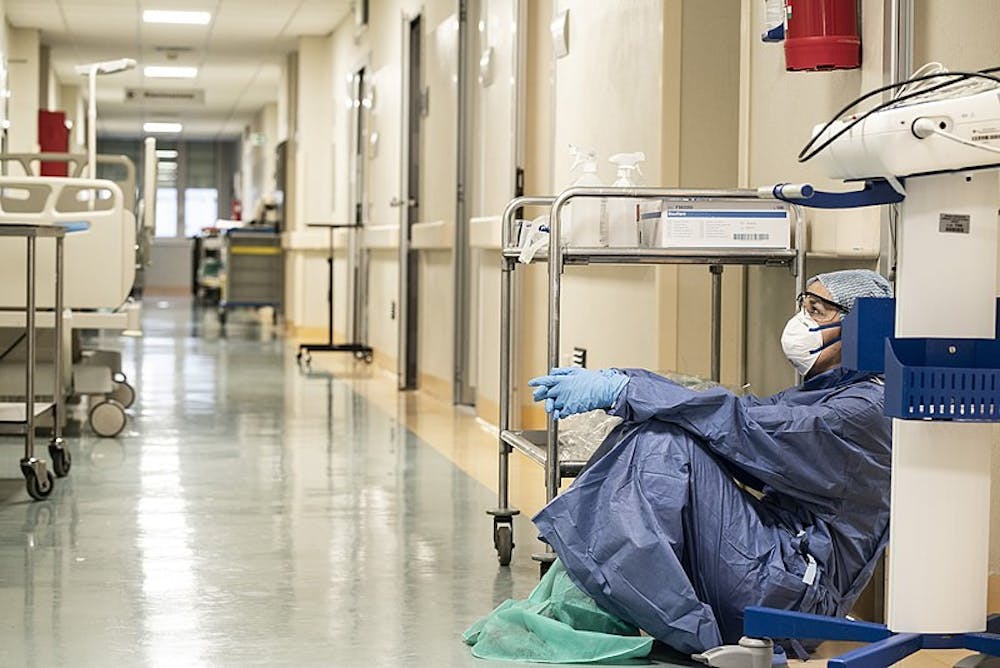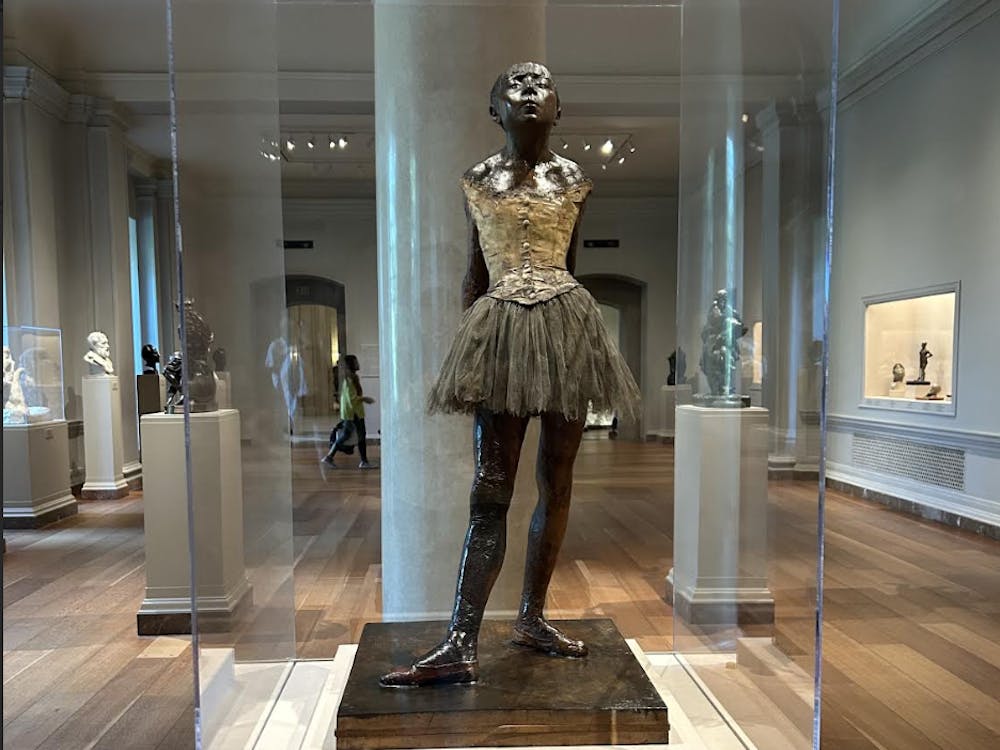
I’m spending my entire freshman year at home, taking classes virtually. My social life is a fraction of what it was a year ago, and that’s saying something. While I didn’t imagine the pandemic would last for so long, I knew it would disrupt my plans.
But I didn’t anticipate that the pandemic would change the way I envision my future career path. Since middle school, I had firmly believed that I would be a doctor. I’ve spent hours researching medical school admissions, trying to figure out what I need to do in college to achieve my goals. Now that I’m here, COVID-19 has shaken my confidence in my dreams and has left me contemplating what those goals should really be.
I’m not doubting whether medicine is the right path for me because I’m disappointed in doctors but, rather, because it’s frustrating to see their efforts and expertise continuously undermined. Harmful myths, such as COVID-19 being engineered in a Chinese laboratory, persist. “Anti-maskers” have organized rallies against state mask mandates. Our own president mocked Joe Biden for wearing a mask just a month ago.
It’s disheartening to see that so many people in this country don’t trust the advice of medical professionals, but I can’t even begin to comprehend the frustration of the health-care workers themselves. Their patients have called COVID-19 a “hoax,” have refused testing despite presenting symptoms and have demanded hydroxychloroquine as treatment for the virus. Doctors and nurses are working around the clock to extinguish a nationwide fire, putting themselves at risk daily to save those pouring the gasoline.
Although it’s certainly beginning to feel like it, I know this pandemic and the conspiracy theories that came with it won’t always be around. But Americans’ lack of confidence in doctors will be. One study found that, from 1966 to 2012, the proportion of Americans who said they had “great confidence” in leaders of the medical profession dropped from 73% to 34%. I know that it’s a doctor’s responsibility to build trust with their patient, but the trend of the public’s declining confidence in medicine seems too large for any one physician to tackle.
Even when Americans do trust their doctors, they’re often rewarded with astronomical costs. About a third of American workers have some type of medical debt. Despite the Coronavirus Aid, Relief and Economy Security Act, the pandemic has left some Americans facing thousands of dollars in medical bills. I have to ask myself: Do I want to be a doctor in a country where recommending life-saving treatment could mean burying my patients in debt?
Another factor worth considering is mental health. The pandemic has left health-care workers feeling helpless and drained, and these aren’t unfamiliar emotions for them. The overall burnout rate among physicians is 42%, though it can be even higher for some specialties. Male doctors’ suicide rates are up to 40% higher than the general population. For female doctors, they can be up to 130% higher. By helping patients improve their health, it seems doctors may sacrifice their own.
It would be easy, maybe even a relief, to point to this list of reasons not to become a doctor and decide to give up. I have plenty of good excuses right here, and I didn’t even mention medical school tuition. And, admittedly, when someone asks if I’m pre-med, my “yes” seems a little more hesitant these days. Yet it’s difficult to forget the ways this pandemic has left me in awe of health-care workers, wondering how soon I can become one myself.
Physicians came out of retirement to fight against COVID-19, even when they themselves belonged to a vulnerable population. Nurses traveled from hotspot to hotspot, making hotel rooms their homes as they offered help where it was most needed. These sacrifices shouldn’t have been necessary, and health-care workers deserve more than a simple acknowledgment of their heroism. But I’d be lying if I said their selflessness wasn’t inspiring to me.
I think, if anything, this pandemic has removed the rose-tinted glasses through which I viewed medicine before. I had been so focused on the hurdles to becoming a doctor that I wasn’t considering the challenges of being one. I don’t know what my path will look like in the next few years, but I’m not writing off medicine yet. You’ll just have to ask me how I feel after taking Organic Chemistry.
Abigail Tuschman is a freshman from South Florida majoring in Writing Seminars. Her column documents the ups and downs of her unusual first year of college.





